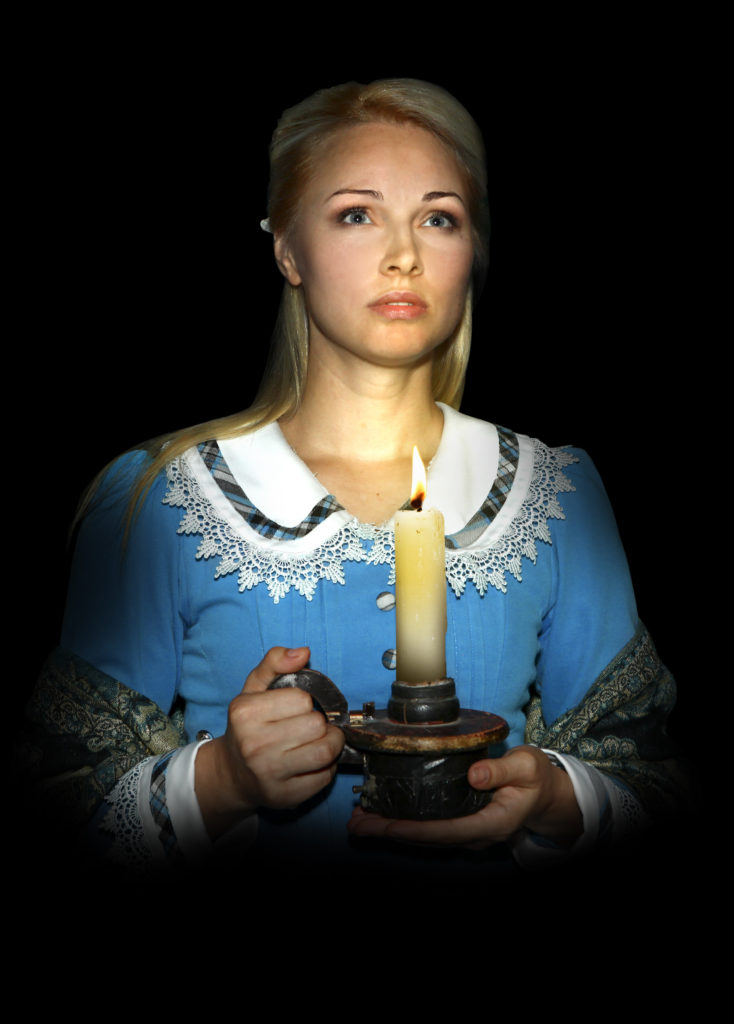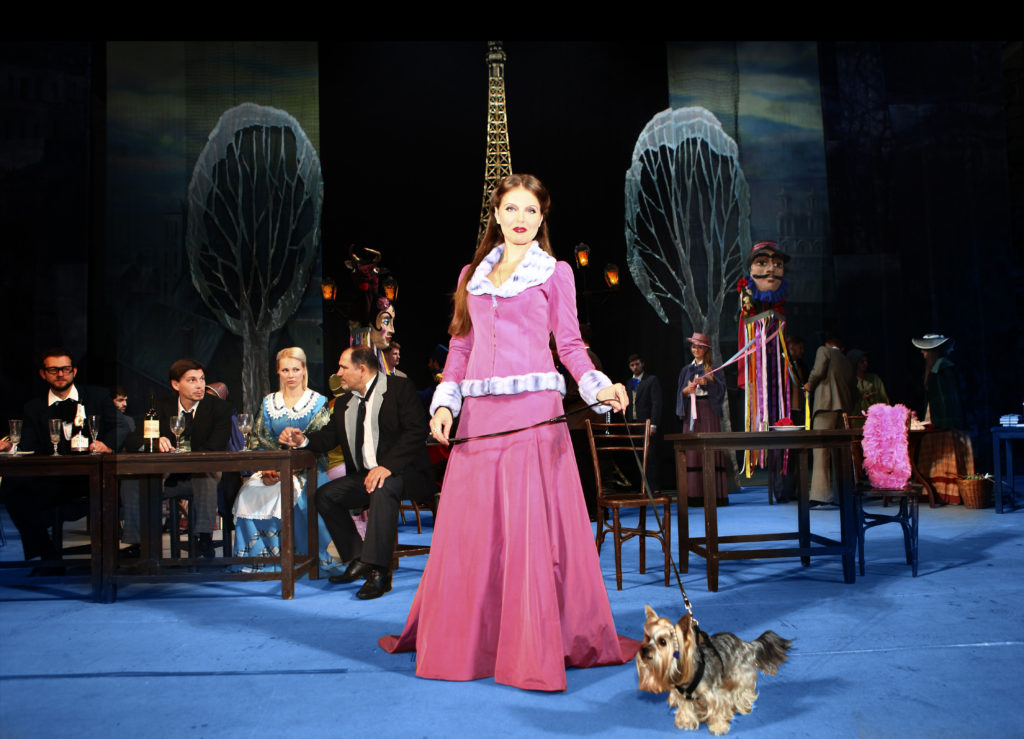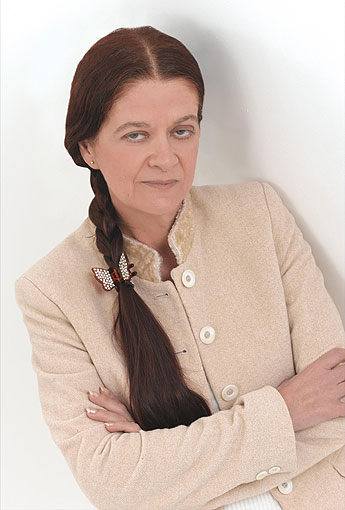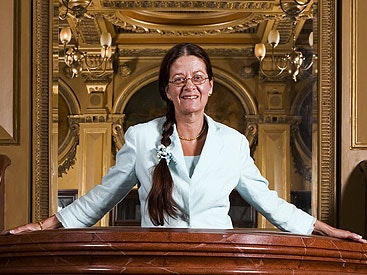
OPERA producer and director Ellen Kent returns to the Grand Opera House, York, with a brace of Puccini productions next week.
Under the Opera International umbrella, she presents La Bohème on March 20 and Madama Butterfly the following night, with sopranos Elena Dee, from Korea, and Alyona Kistenyova, from Odessa National Opera, billed for the 7.30pm performances, subject to cast changes.
Ukrainian tenor and former military pilot Vitalii Liskovetskyi, from the Kiev National Opera, will be reprising his role as Rodolfo in La Bohème; Spanish tenor Giorgio Meladze, who sang with José Carreras in 2014, plays Pinkerton in Madama Butterfly; Moldovan baritone Iurie Gisca will be singing Marcello in La Bohème.
Soprano Marina Tonina takes the role of Musetta in La Bohème and both productions will feature a full chorus, orchestra and sumptuous sets and be sung in Italian with English surtitles.
Set in the backstreets and attics of bohemian Paris, La Bohème tells the tragic tale of the doomed romance of consumptive seamstress Mimi and penniless Rodolfo.
Madama Butterfly’s heat-breaking story of the beautiful young Japanese girl who falls in love with an American naval lieutenant, with entirely predictable consequences in the world of opera, will be staged with a Japanese garden and antique wedding kiminos.
Tickets are on sale on 0844 871 3024 or at atgtickets.com/york.

Here, Ellen Kent answers questions on her 2020 production of Puccini’s opera of love and loss, La Bohème, a touring show inspired by Ellen reading George Orwell’s Down And Out In Paris.
What can the Grand Opera House audience expect from your production, Ellen?
“I like to provide shows at a very high level and I like large productions, so the feel is very much of a big show.
“I try to put everything into it, from the sets to the artists on the stage, and I like to add things. For example, with La Bohème, I have these fabulous visuals. I’m a very visual director and producer, so I give audiences the whole package.
“The overall experience is of something that is very beautiful, with gorgeous and spectacular sets. The curtain goes up and, depending on the opera of course, I want the audience to feel the ‘Wow’ factor. The sets have got to be beautiful and I like to wrap something visually stunning around the plot.”
How are you staging La Bohème?
“It’s set in the French Impressionist period, so my sets reflect that. For instance, I’ve gone for a beautiful Chagall and Renoir feel and it’s quite stunning. You get this beautiful French Impressionist flavour and everything is done to serve that, so when you look at it, it’s a bit like an Impressionist painting.
“I like to dress my sets, so in La Bohème, for instance, Act One is set in an attic and it’s got all these wonderful rooftops, as if they’ve been painted by one of the great French artists.
“Then I like to add something more realistic, so you have this sort of Impressionist painting but we’ve also got windows lit up and we have smoke coming out of a few of the chimneys.
“I’ve got a human skeleton – though not a real one of course – which I’ve dressed with a hat and a scarf. We also have a dog on stage; a brass band; snow machines; a carnival effect; the cafe with waiters running around, a market stall.

“The whole thing is a visual feast and I always like to draw on the period an opera is set in. I do have an Eiffel Tower, which of course was built later, but that’s a bit of poetic licence.”
Why is La Bohème so beloved?
“With [Jonathan Larson’s American musical] Rent basing itself on La Bohème, for example, people use Puccini’s operas as benchmarks to build modern musicals on, which shows how strong the stories and themes in his operas are.
“The music is beloved because it’s so great and La Bohème is my personal favourite because you have this poignant story wrapped around this fabulous music. There’s something rather special about Puccini’s scores and the stories that go with them are very well constructed. Some of what the characters sing is heart-rending, and people love tragedy.
“La Bohème is a very sad little story and it’s got Puccini’s wonderful music and moments of great poignancy. There’s something about the violins that brings up those goosebumps and goes straight to your soul.
“It also has a lot of comedy, which I like to bring out. Opera should be giving you the whole deal – wonderful music, gripping storylines – and these two really deliver.”
How does La Bohème fit into the timeline of Puccini’s work?
“Like Verdi, he started off with these great Biblical-style operas, such as Turandot, for instance. They’re big storylines, not necessarily personal dramas. Then everything changed around the 1830s, when realism and domestic storylines became fashionable.
“Puccini jumped on to the bandwagon. La Bohème is about a domestic tragedy and it is complete realism. It’s about very poor people living in the deprived parts of Paris: these artisans and poets starving in garrets and living in mindless poverty.”
Has Rent opened up La Bohème to new audiences?
“Yes. I tend to take a musical theatre approach to operas, with lavish visuals, and I get a lot of people coming to the shows who haven’t been to an opera before but they’ve seen big musicals like Miss Saigon or Rent. I firmly believe in opening up opera to the masses.”
Your production will be sung in Italian with surtitles, rather than in English. Does that reflect the purist in you?
“I can’t stand operas in English! I am a purist in that regard; you start putting them into English and the whole sound changes. Puccini wrote with Italian vowels, and when you’re singing, you need that Italian in the voice, instead of clipped British intonations. “And, of course, surtitles open opera up to the masses and they’re much better than just having a synopsis in the programme.
“We do that too, but the actual words used are poetic and moving. The librettos are extremely good pieces of writing and you get all this emotion coming out of the words, matched by the emotion coming out of the music. You put those two together and the audience gets a much better experience.”

What first sparked your love of opera?
“I was born in India to a colonial father and my mother was known as the queen of amateur operatics in Bombay. My mother loved producing and putting on shows – and they were really good, actually.
“She managed to put me into every single opera from about the age of four. I’d be dressed in these wonderful costumes and I loved it. Then we moved to Spain and we’d go see all the – rather bad – travelling operas.
“That said, from the age of six, I declared I wanted to be a film star. Eventually, after my father had retired, I enrolled at Durham University to do a degree in Classics to appease him because he insisted ‘You’ve got to have some academic education’.
“I don’t regret doing that degree now because it’s given me a wonderful background for all the operas I’m doing. After I finished my degree, I went to the Bristol Old Vic Theatre School, trained as an actress, singer and dancer, because although I got a place at the Royal Academy of Music to go be an opera singer, I decided it was too narrow a field.”
What happened after you left theatre school?
“I went on to acting and musicals and was putting on European children’s theatre when Rochester City Council, who were among the people funding me, asked me to put on a children’s show in Rochester Castle gardens.
“I don’t know where these notions come from, but I found myself saying, ‘I don’t think that’s really suitable but opera might work’. So, that’s how it all started, with an outdoor production of Nabuccoin 1992 to 7,000 people.
“I remember the sun sinking over the River Medway with all these people having picnics. We had champagne tents, candelabras, the whole works, and I thought, ‘this is what I want to do. It’s fantastic. I’m going to do opera’. Since then, it’s been a series of wonderful adventures.”
Why is it important to take opera to regional theatres?
“I’m quite an instinctive person so, although I never really thought it through, I just knew audiences in the regions would be hungry for opera. And why go to London when you have these wonderful sites – these outdoor arenas and lovely big theatres – all around the country?
“I felt that half the population didn’t know how wonderful these works were and I’ve never changed my concept of it. The regions are where these shows need to be.”
